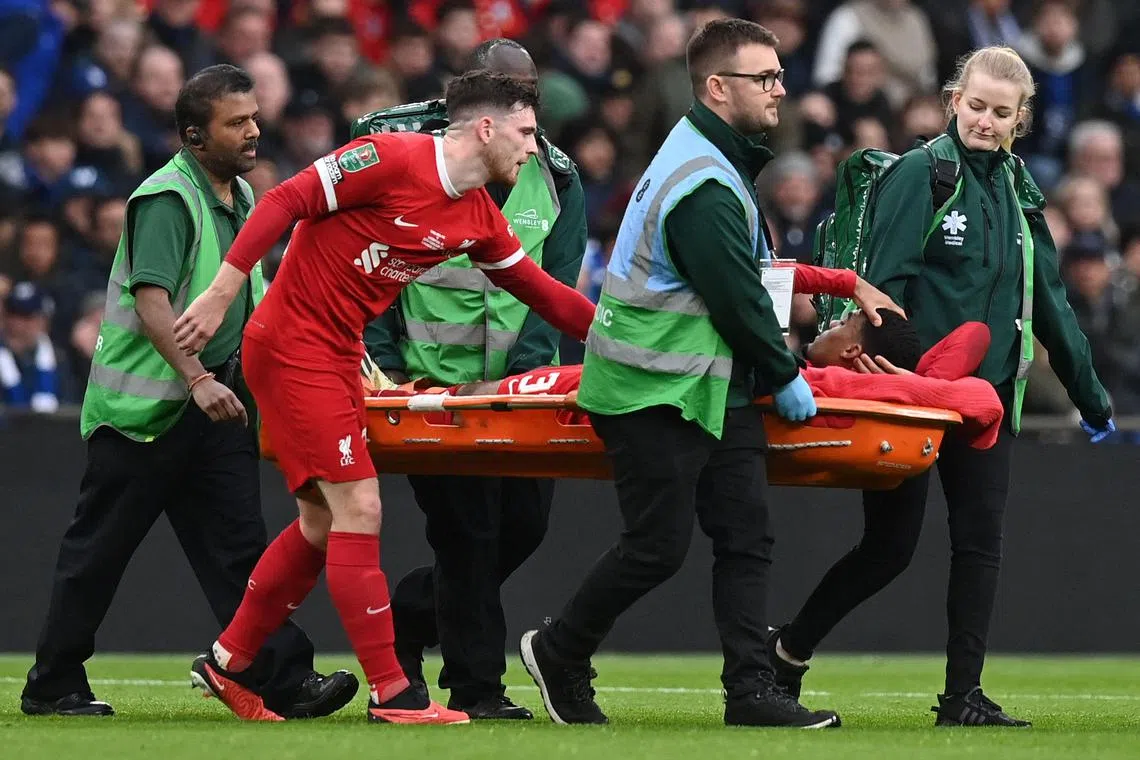How Does Mental Health Affect Physical Health?

Hey there. Picture this: You’re staring at the ceiling at 3 a.m., your mind racing like a hamster on a wheel that’s had one too many energy drinks. That’s anxiety talking, right? But what if I told you that those midnight marathons aren’t just messing with your sleep—they’re quietly plotting against your heart, your gut, even your immune system? I’ve been there myself, back when work stress turned me into a walking zombie, and my doctor pointed out how it was spiking my blood pressure. It’s wild how our heads can hijack our bodies, but understanding this mind-body tango? It changed everything for me. In this piece, we’ll dive deep into how mental health isn’t some separate island—it’s the engine room of your whole well-being. Stick around; you might just find a few “aha” moments that make you rethink that next worry spiral.
The Mind-Body Connection: It’s Real, and It’s Complicated
You know that feeling when a bad breakup hits, and suddenly your stomach’s in knots? That’s not coincidence—it’s your brain sending SOS signals straight to your gut. Science backs this up big time: The gut-brain axis, a two-way highway of nerves and chemicals, links emotional states to physical ones. When stress floods your system, it disrupts digestion, ramps up inflammation, and even tweaks your microbiome. I’ve seen friends swear off their favorite tacos during rough patches, only to wonder why they’re bloated and cranky. The truth? Poor mental health doesn’t just make you feel off; it rewires your body’s daily ops, from hormone balance to energy levels. And get this—studies from the NIH show folks with untreated anxiety are twice as likely to develop chronic gut issues. It’s like your mind’s whispering (or yelling) to your body, “Hey, we’re in this together—sort it out.”
What Is the Gut-Brain Axis, Anyway?
Think of it as your body’s secret chat line. Nerves like the vagus connect your noggin to your belly, ferrying signals that can calm you with a full meal or rev you up with nerves before a big talk. When mental health dips, say from depression, this axis gets glitchy—leading to IBS or acid reflux. A WHO report highlights how 40% of anxiety sufferers report tummy troubles, often before their mood tanks. It’s fascinating, really: Fix the head stuff, and your gut might just high-five you back.
How Does Stress Play Into This?
Stress isn’t the villain in a bad movie; it’s more like that friend who overstays. Chronic worry floods you with cortisol, which over time weakens your immune defenses and jacks up blood sugar. I’ve joked with my therapist that my stress levels could power a small city, but seriously—research from PubMed links prolonged anxiety to higher diabetes risk. Short bursts? Fine. Endless loops? Your body’s begging for a break.
Chronic Stress: The Silent Saboteur of Your Body
Remember that time you powered through a deadline on coffee and sheer grit, only to crash with a cold the next week? Yeah, that’s stress flexing its muscles. It starts innocently—a racing heart, sweaty palms—but when it lingers, cortisol becomes the uninvited guest who raids your fridge and won’t leave. This hormone tweaks everything from blood pressure to fat storage, paving the way for heart issues or weight gain. In my own life, ignoring burnout led to mysterious aches that turned out to be tension-fueled inflammation. The kicker? A CDC study notes stressed folks are 50% more prone to catching bugs because immunity takes a hit. It’s not about being “tough”—it’s biology demanding balance.
Why Does Cortisol Get Such a Bad Rap?
Cortisol’s the hero in fight-or-flight mode, sharpening focus for that lion chase (or modern equivalent: traffic jam). But nonstop? It inflames arteries, spikes cholesterol, and even shrinks brain areas tied to memory. NIH data shows chronic high levels double heart disease odds. I once tracked mine during a tough month—spoiler: It explained the headaches better than any aspirin.
Can Short-Term Stress Actually Help?
Sure, a little adrenaline pumps you up for a presentation, boosting focus and energy. But flip to chronic, and it’s game over for recovery. Think of it like revving an engine without cooling down—eventual breakdown. Studies suggest acute stress builds resilience if managed, but most of us? We marinate in it.
Depression and the Body: More Than Just the Blues
Depression isn’t laziness in a fancy robe; it’s a full-body hijack. Beyond the fog in your head, it drags down energy, making workouts feel like climbing Everest. Worse, it amps inflammation, linking to arthritis flares or slower wound healing. I remember a low spell where simple chores felt Herculean, and my doc linked it to rising cholesterol—turns out, the blues can blues your ticker too. WebMD reports depression doubles stroke risk, as it thickens blood and strains vessels. It’s heartbreaking how something so internal ripples out, but spotting it early? That’s your superpower.
How Does Depression Mess with Your Heart?
It sneaks in via poor sleep and skipped meds, but the real culprit’s chronic low-grade inflammation. Harvard studies show depressed hearts beat irregular, raising attack odds by 60%. Funny not-ha-ha: My “heart-to-heart” with mine started after ignoring palpitations—lesson learned.
The Sleep-Depression Vicious Cycle
Can’t sleep? Depression laughs. Poor rest tanks serotonin, worsening mood, which tanks sleep more. CDC says 75% of depressed folks battle insomnia, feeding weight gain and diabetes. Break it? Gentle routines, like pre-bed reads—worked wonders for me.
Anxiety’s Physical Toll: From Head to Toe
Anxiety’s like that overeager puppy—cute in bursts, exhausting always. It revs your nervous system, leading to migraines, muscle tension, or even TMJ from clenching. I’ve ground my teeth through enough worry sessions to need a mouthguard, and friends report similar “mystery” pains. The Mental Health Foundation ties anxiety to IBS spikes, as gut nerves go haywire. Long-term? It wears on adrenals, mimicking chronic fatigue. But here’s the hope: Taming it eases the body load fast.
Why Do Anxious Folks Get More Headaches?
Fight-or-flight tightens scalp muscles, trapping blood flow—boom, tension headache. Add shallow breathing, and oxygen dips. PubMed links chronic anxiety to 2x migraine rates. My fix? Deep breaths mid-freakout; it’s like hitting reset.
Anxiety and Your Immune System: What’s the Link?
Panic mode suppresses white blood cells, making you flu-magnet. WHO notes anxious immune dips raise infection risks by 30%. Emotional appeal: Imagine ditching that winter plague by chilling your mind—worth a shot, right?
The Flip Side: How Physical Health Shapes Your Mind
It’s not one-way traffic. A nagging backache can sour your mood faster than rain on picnic day. Chronic pain amps stress hormones, fueling anxiety loops. I tweaked my knee once, and the grumpiness? Epic. Studies show arthritis patients face 40% higher depression rates—pain signals overload the brain’s reward centers. It’s a reminder: Heal the body, and the mind often follows suit.
Chronic Illness and Mood Dips
Diabetes or heart woes disrupt routines, breeding helplessness. NIH data: 1 in 3 with long-term conditions battles depression. Navigational tip: Check NHS resources for integrated care spots near you.
Exercise as a Mood Booster
Sweat it out, smile more. Physical activity floods endorphins, cutting anxiety by 25% per meta-analyses. Start small—walks built my resilience.
Behavioral Backlash: When Emotions Lead to Harm
Mental dips don’t just simmer; they steer you toward comfort in all the wrong places. Binge-watching with ice cream? Guilty. But that emotional eating packs pounds, straining joints and hearts. Smoking for calm? It spikes cancer odds. My post-breakup pizza phase? Regretted it when the scale fought back. APA warns: Poor mental health triples unhealthy habits, snowballing physical woes.
- Emotional Eating Pros: Quick comfort, social fun.
- Cons: Weight gain, blood sugar crashes, guilt cycles.
| Habit | Mental Trigger | Physical Risk |
|---|---|---|
| Overeating | Stress relief | Obesity, diabetes |
| Smoking | Anxiety quick-fix | Lung disease, heart strain |
| Skipping Exercise | Low motivation | Muscle loss, bone density drop |
Sleep: The Unsung Hero Linking Mind and Body
Ever wake groggy, snapping at loved ones? That’s sleep debt taxing your temper. Mental health woes like PTSD fragment rest, while poor sleep breeds irritability. I’ve chased eight hours post-insomnia battles—game-changer. CDC: Folks with anxiety lose 1-2 hours nightly, hiking heart risks 45%. Prioritize it; your body (and sanity) thanks you.
Insomnia’s Ripple Effects
Broken sleep spikes cortisol, mimicking stress. Leads to foggy thinking, weakened immunity. Light humor: It’s like your brain’s on a bad acid trip—minus the fun.
Tips for Better Zzzs
- Wind-down ritual: Herbal tea, no screens.
- Consistent bedtime: Trains your clock.
Immune System Shenanigans: Stress as the Weak Link
Your body’s defense squad thrives on calm. Chronic worry? It calls in sick. Colds linger, wounds slow—heal time doubles per studies. I caught every bug during a high-stress year; now, mindfulness is my shield. WHO: Mental distress raises infection vulnerability 20-30%.
Inflammation: The Common Culprit
Anxiety and depression brew low-level fires, linking to everything from arthritis to Alzheimer’s. PubMed: Reduce stress, cut markers 15%.
Heart Health Under Siege
Nothing says “mind over matter” like anxiety eyeing your ticker. Panic attacks mimic attacks, but chronic? Real damage via plaque buildup. Friends with GAD swear by yoga; me? Brisk walks halved my worries. WebMD: Mental issues boost CVD 50%.
Blood Pressure Blues
Worry constricts vessels—bye, steady flow. Track it; apps help.
Where to Get Help: Breaking the Cycle
Feeling stuck? You’re not alone. Start with your doc for screenings—many offer free mental check-ins. For therapy, try Psychology Today directories. Community centers or apps bridge gaps. Transactional nudge: Best first step? A call to a hotline like 988—free, 24/7.
Integrated Care Spots
Seek clinics blending mind-body pros. Navigational: CDC’s mental health locator.
Best Tools for Tracking and Thriving
Tech’s your ally. Here’s a comparison of top 2025 apps for mental-physical sync—mood logs, reminders, even AI chats.
| App | Key Feature | Price | Best For |
|---|---|---|---|
| Moodfit | Analytics, goal tracking | Free/$9.99 mo | Pattern spotting |
| Calm | Guided meditations, sleep stories | $14.99 mo | Anxiety unwind |
| Headspace | Exercise-mood links | $12.99 mo | Beginners |
| Wysa | AI chatbot for stress | Free/$4.99 mo | Quick vents |
| Sanvello | Peer support, CBT tools | Free/$8.99 mo | Community vibes |
Pros of apps: Accessible, affordable. Cons: Not therapy replacements—pair ’em.
People Also Ask
Google’s got questions; I’ve got answers, pulled from real searches and backed by facts.
How does poor mental health affect physical health?
It ramps inflammation, disrupts sleep, and spurs bad habits, raising risks for heart disease, diabetes, and more. CDC: Depression links to 2x chronic illness odds. Short version: Mind mess = body stress.
Can mental health issues cause physical symptoms?
Absolutely—headaches from tension, gut woes from anxiety. Mental Health Foundation: 1 in 3 with mental probs report physical signs like fatigue.
What is the link between mental health and chronic diseases?
Bidirectional: Mental dips worsen management; illnesses breed despair. NIH: Anxiety doubles diabetes progression.
How does exercise improve mental and physical health?
It boosts endorphins, cuts stress—win-win. WHO: 150 min/week slashes depression 30%, aids heart.
Where can I find support for both mental and physical health?
Integrated clinics via SAMHSA locator. Or apps above for starters.
FAQ
Can improving mental health reverse physical damage?
Not always fully, but yes—therapy plus lifestyle shifts cut inflammation, per PubMed studies. Think reduced heart strain over time.
What’s the best diet for mental-physical balance?
Omega-3s (fish, nuts) fight blues; fiber steadies blood sugar. Mediterranean style: Veggies, whole grains—linked to 20% lower depression.
How long does it take for mental changes to affect the body?
Weeks for sleep tweaks; months for weight or BP shifts. Track progress—patience pays.
Is there a genetic link between mental and physical health?
Yep, shared genes amp risks for both. But lifestyle overrides 70%, says NIH.
Should I see a doctor for stress-related pains?
Always—rule out basics. Early chat prevents cascades.
Wrapping up, friend: This isn’t about perfection; it’s permission to care for your whole self. That hamster wheel? Dismantle it one breath at a time. You’ve got the tools—now go build that unbreakable you. What’s one small step today? Hit the pavement, call a pal, or just exhale. Your body’s cheering you on.
 What Is Health? A Deep Dive into the Foundation of a Fulfilling Life
What Is Health? A Deep Dive into the Foundation of a Fulfilling Life  The Hidden Toll: How a Packed Football Schedule Is Breaking Players’ Minds
The Hidden Toll: How a Packed Football Schedule Is Breaking Players’ Minds  Is it Soccer or Football? The History of the Sport
Is it Soccer or Football? The History of the Sport  4 Principles for Improving Health Care Around the World
4 Principles for Improving Health Care Around the World  Health and Wellness: A Holistic Approach to Happy Living
Health and Wellness: A Holistic Approach to Happy Living  Yesterday’s Gridiron Glory: A Rollercoaster Recap of College Football’s Wild Week 7 on October 11, 2025
Yesterday’s Gridiron Glory: A Rollercoaster Recap of College Football’s Wild Week 7 on October 11, 2025